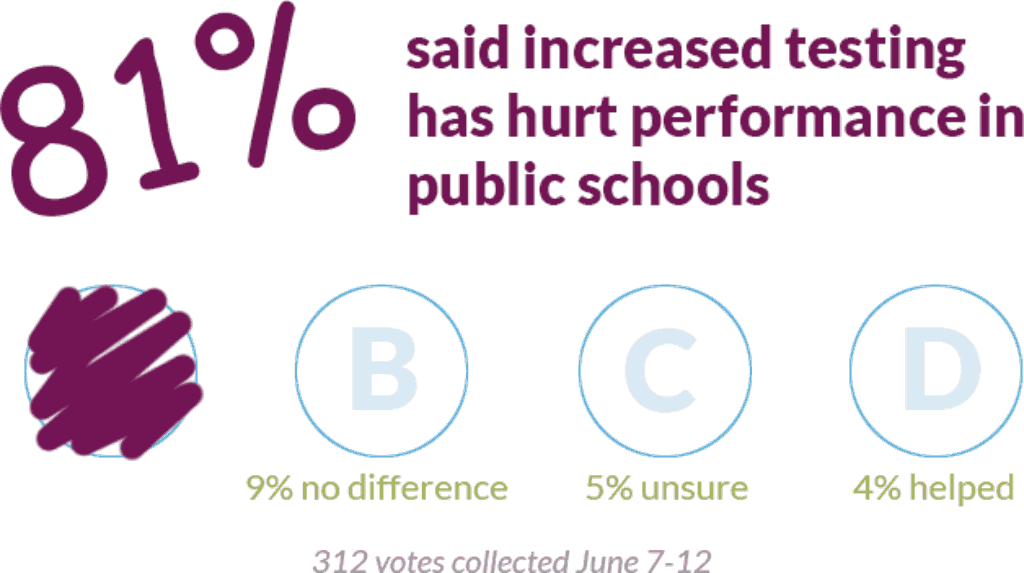Summer break is finally here, but it didn’t come without end-of-year testing for students. We wanted to hear from North Carolinians their thoughts on standardized testing, so in our June 7 Reach Roundup newsletter, we posed our Question of the Week: “How has standardized testing affected the performance of local public schools?”
Response options included: helped, hurt, made no difference, or unsure. Here’s the breakdown of how participants answered our question and some of the comments we received:


“Standardized testing is as ineffective as data collection. There are too many uncontrollable variables for the scores to be meaningful. Scores can vary wildly over something as random as the temperature in the testing room or whether a student had breakfast. The cultural differences, different reading levels, not to mention the random lucky or unlucky guesses impact scores to a degree we can only estimate.”
-Marie from Garner, NC
“Many students become dispirited that their creativity and personal pursuits are reduced to a percentage dictating whether or not they will be “successful” — many other students focus solely on the test grade rather than developing the personal integrity and moral character of an outstanding citizen capable of effective interpersonal communication, real world problem solving, and applicable critical thinking. That is to say, many students value the idea of success rather than the struggle to get there and are afraid of failure as a result.”
-Elliot from Hendersonville, NC
“As a chemistry professor, and also a school board member, I have taken to evaluating several of the exams. Typically the North Carolina Final Exam for Chemistry has nearly half the questions with either no right answer, multiple right answers, or misleading scientific information. How can meaningful analysis of learning come from such poor exams. Furthermore, I have never seen life come to me as a multiple choice question.”
-Jim from Cary, NC
“The increase in standardized testing has clearly hurt public education. The test results carry too much weight when it comes to judging achievement levels of both the students and their schools. State legislatures use low test scores as a reason to promote private schools and charter schools thereby diverting funds from public schools [and] making the job of public [schools] even more difficult.”
-Keith from Goldsboro, NC
“We get no meaningful feedback that would allow true improvement of teaching. I don’t know what standards I need to teach differently to improve student learning. Also, only about 10 of the ELA standards actually show up on the test which means it doesn’t gauge student learning in any meaningful way.”
-Stephanie from Charlotte, NC
Interested in participating in Reach NC Voices? You can sign up below to share your thoughts on our weekly questions. We’d love to hear from you!


